by Lois Tverberg
Pray to the LORD, for we have had enough thunder and hail. I will let you go; you don’t have to stay any longer.” Moses replied, “When I have gone out of the city, I will spread out my hands in prayer to the LORD. The thunder will stop and there will be no more hail, so you may know that the earth is the LORD’s. – Exodus 9:28-29
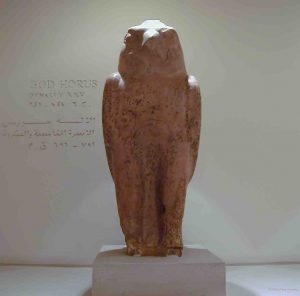 As the passage above says, God unleashed the powerful forces of nature in the plague of hail to show that he was the true ruler over the earth, not the hundreds of “gods” that the Egyptians worshipped. It was clear that God was in control of other aspects of nature when locusts and diseases destroy the crops and livestock at Moses’ command.
As the passage above says, God unleashed the powerful forces of nature in the plague of hail to show that he was the true ruler over the earth, not the hundreds of “gods” that the Egyptians worshipped. It was clear that God was in control of other aspects of nature when locusts and diseases destroy the crops and livestock at Moses’ command.
It may surprise you that most of the plagues could be describing natural events that were known to occur in Egypt. The Nile turning to blood may describe the red tide, a type of algae that kills fish when it overgrows, or an excessive reddish silt washed down from the mountains during an abnormally strong annual flood. The frogs might have bred in the stagnant water left behind from the flooding.
Even the “darkness that can be felt” seems to be a description of a dusty sandstorm that comes from the hamsim, strong east winds that blow in from the Sahara Desert that blot out the sun, which can make it as dark as night. (The dust storms during the Dust Bowl in 1930’s were described this same way.)
The thought that the plagues could have had natural causes initially feels disturbing because we assume that God must show his supremacy by turning nature on its head. But what showed God’s power is not the unearthliness of the plagues, but God’s sovereignty over their timing and who they afflicted. They began exactly as Moses announced them, and some did not strike Goshen, where the Israelites lived. While they might have been events of nature, they clearly were controlled by God’s will.
Even the last plague, the death of the firstborn may have had a semi-natural origin. During the Dust Bowl, many succumbed to “dust pneumonia” because inhaling large amounts of dust can cause severe lung inflammation and even death. But the fact that every firstborn succumbed to the illness all on the same night was profoundly supernatural. While God was working through nature, his timing showed that he was utterly in control.
When you think about it, God working through nature is really the most appropriate display of his power, because he is the creator and sustainer of all things. You can see this in that the point at which the magicians realized that their gods were defeated was a seemingly mild plague, that of the gnats. (Ex. 8:18-19) Why? Because God is the creator, not Satan. God’s creation of the tiny gnat was too much for Satan to imitate. It was the God of Israel who held the life of every creature in his hands.
Photocred: Bibleplaces.com

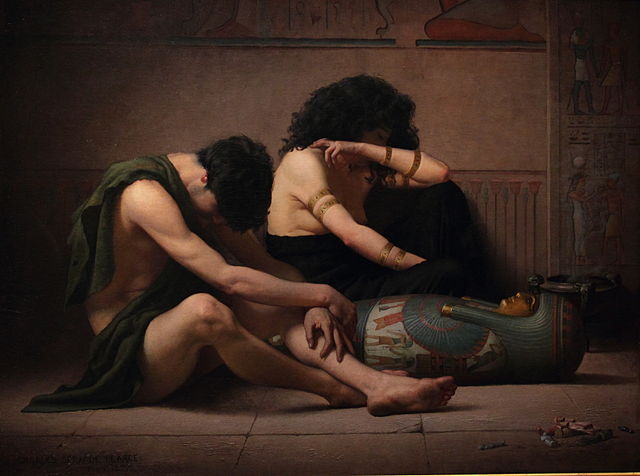
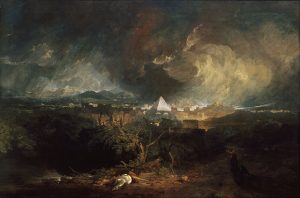 e LORD said to Moses, “When you go back to Egypt see that you perform before Pharaoh all the wonders which I have put in your power; but I will harden his heart so that he will not let the people go. – Exodus 4:21
e LORD said to Moses, “When you go back to Egypt see that you perform before Pharaoh all the wonders which I have put in your power; but I will harden his heart so that he will not let the people go. – Exodus 4:21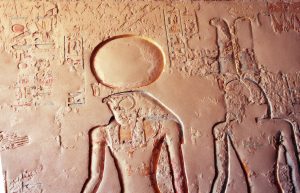 Israelites, but to declare that God was supreme over the many “gods” that Egypt worshipped (Ex.
Israelites, but to declare that God was supreme over the many “gods” that Egypt worshipped (Ex.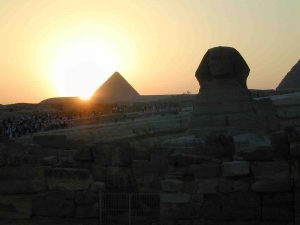 In the next weeks En-Gedi’s Water from the Rock series will focus on Exodus, specifically God’s redemption of the Israelites from Egypt. Christians generally don’t see this story as especially significant. But for thousands of years, Jewish readers have considered it a defining point their history, when God reached down into world events in an unprecedented way. The story of redemption is also central to the rest of the Scriptures, as the foundation of God’s relationship with the people of Israel. We can see the story’s critical importance just by noticing the many references that are made to it throughout the Bible. Here are just a few:
In the next weeks En-Gedi’s Water from the Rock series will focus on Exodus, specifically God’s redemption of the Israelites from Egypt. Christians generally don’t see this story as especially significant. But for thousands of years, Jewish readers have considered it a defining point their history, when God reached down into world events in an unprecedented way. The story of redemption is also central to the rest of the Scriptures, as the foundation of God’s relationship with the people of Israel. We can see the story’s critical importance just by noticing the many references that are made to it throughout the Bible. Here are just a few: